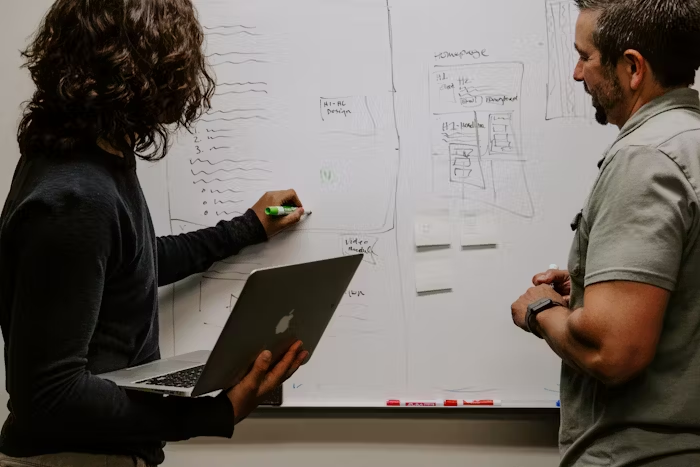In our increasingly globalized world, learning a second language has become more than just a personal interest — it’s a powerful tool for success. Whether for career advancement, cultural enrichment, or cognitive enhancement, the benefits of acquiring a new language are far-reaching. As businesses expand their international reach and cultural exchange becomes more prevalent, being bilingual or multilingual is an invaluable asset. This article explores the diverse benefits of learning a second language and offers practical tips on how to start your language-learning journey. By understanding these advantages, you can unlock new opportunities for personal growth, improved communication, and enhanced cognitive abilities.

Cognitive Benefits
Improved Brain Function
Learning a second language challenges your brain in unique ways. It requires you to understand complex grammar, memorize vocabulary, and think in a language that is not your native tongue. This constant mental exercise has been shown to improve cognitive function. Studies indicate that bilingual individuals have enhanced problem‑solving skills, better multitasking abilities, and improved memory. The process of switching between languages also strengthens the brain’s executive functions, which help in planning, focusing, and prioritizing tasks.
Delayed Cognitive Decline
Research has shown that bilingualism can delay the onset of dementia and Alzheimer’s disease. By continuously engaging in the mental gymnastics required to switch languages, the brain builds up a cognitive reserve that helps to fend off age-related decline. For many older adults, learning a new language is not only a way to keep their minds sharp but also a strategy to maintain long‑term cognitive health.
Academic and Professional Advantages
Enhanced Academic Performance
For students, learning a second language can provide a significant academic edge. Studies have demonstrated that bilingual students often perform better on standardized tests and show higher levels of academic achievement compared to their monolingual peers. The skills developed through language learning — such as critical thinking and improved memory — translate into better performance across various subjects.
Increased Career Opportunities
In the global job market, the ability to speak a second language is a highly sought‑after skill. Employers value bilingual candidates for their ability to communicate with diverse clients, negotiate in different cultural contexts, and adapt to international business environments. Whether you’re working in finance, technology, healthcare, or education, being multilingual can open doors to exciting career opportunities and increase your earning potential. In many cases, language skills can set you apart in competitive job markets and lead to roles that require global travel or cross‑cultural communication.
Expanded Networking and Cultural Exchange
Learning a new language also enhances your ability to build professional networks. By breaking down language barriers, you can engage with professionals from different parts of the world and gain fresh insights into global markets. This cultural exchange enriches your perspective, helping you to become a more effective communicator and a more innovative problem‑solver. Networking in a second language can lead to collaborations, partnerships, and business opportunities that might otherwise be out of reach.
Social and Cultural Benefits
Broadened Worldview
When you learn a second language, you gain more than just linguistic skills — you open a window to a different culture. Language is deeply intertwined with cultural identity, and learning it allows you to understand the traditions, values, and histories of another community. This broadened worldview fosters empathy, reduces prejudice, and promotes cross‑cultural understanding. Whether you’re traveling abroad or interacting with people in your own community, your ability to appreciate diverse perspectives enriches your social experiences.
Deeper Connections with Others
Speaking another language can help you form more authentic relationships with people from different backgrounds. It shows respect for their culture and makes interactions more personal and meaningful. Whether you’re conversing with native speakers on vacation or engaging with international colleagues at work, the ability to communicate in their language creates stronger bonds and builds trust.
Increased Confidence and Personal Growth
The journey of learning a new language is challenging, and each milestone achieved — whether mastering pronunciation, holding a conversation, or reading a book — boosts your confidence. Overcoming these challenges can be incredibly empowering and contributes to personal growth. As you expand your linguistic abilities, you may find that your self-esteem and resilience also increase, enabling you to approach other areas of your life with a newfound sense of determination and optimism.
Practical Tips for Learning a Second Language
Set Clear, Achievable Goals
Start by setting realistic and measurable goals. Instead of aiming to become fluent overnight, focus on gradual improvements. For instance, set a goal to learn a certain number of words or phrases each week. As you achieve these small milestones, your confidence will grow, and you’ll be motivated to continue.
Immerse Yourself in the Language
Immersion is one of the most effective ways to learn a language. Surround yourself with the language as much as possible. Watch movies, listen to music, read books, and follow social media accounts in your target language. Immersing yourself in the culture can accelerate your learning and help you understand contextual nuances.
Practice Regularly
Consistency is key when learning a new language. Dedicate a specific amount of time each day to practice, whether through speaking, listening, or writing. Even short, daily practice sessions can be more effective than long, infrequent study sessions. Utilize language-learning apps, online courses, and conversation exchanges to reinforce your skills.
Join a Language Community
Engaging with others who are also learning the language can provide invaluable support and motivation. Join local language classes, online forums, or social media groups where you can practice speaking, share resources, and exchange tips. The camaraderie of a language community can help you overcome challenges and celebrate successes together.
Be Patient and Embrace Mistakes
Learning a new language is a journey that involves making mistakes. Don’t be discouraged by setbacks; instead, view them as learning opportunities. Each error is a stepping stone toward improvement. Maintain a positive mindset, and remind yourself that progress takes time and persistence.
Leveraging Technology for Language Learning
Modern technology offers an array of tools that can simplify the process of learning a new language. Mobile apps, online courses, and digital resources have made language learning more accessible than ever.
Use Language Learning Apps
Apps such as Duolingo, Babbel, and Rosetta Stone offer engaging, gamified lessons that can help build vocabulary and grammar skills. These apps often incorporate spaced repetition techniques, which are proven to enhance long‑term retention. They also allow you to practice at your own pace, making them ideal for busy schedules.
Participate in Online Courses
Platforms like Coursera, Udemy, and edX offer language courses taught by experienced instructors. These courses provide structured lessons, interactive exercises, and opportunities to connect with fellow learners. Online courses can offer a more comprehensive approach to language learning, complete with assignments and assessments.
Engage with Digital Media
Listening to podcasts, watching videos, and reading articles in your target language can supplement your studies and improve comprehension. Subscribing to YouTube channels or following blogs dedicated to language learning can provide continuous exposure and practical tips. Digital media not only reinforces what you’ve learned but also introduces you to the cultural context of the language.
The Long-Term Impact of Learning a Second Language
The benefits of learning a second language extend far beyond academic or professional advantages. They contribute to a richer, more fulfilling life. As you become proficient in another language, you gain a deeper understanding of different cultures, which can enhance empathy and broaden your worldview. This cultural awareness can lead to more meaningful relationships, both personally and professionally.
Moreover, the cognitive benefits of bilingualism are well-documented. Learning a second language improves memory, enhances problem‑solving skills, and even delays cognitive decline as you age. The mental agility that comes from juggling multiple languages translates into better overall brain function and increased creativity.
On a personal level, the journey of learning a new language is a testament to resilience and adaptability. Each new word, phrase, and conversation builds confidence, empowering you to tackle other challenges in life. The skills you develop through language learning — patience, persistence, and cultural sensitivity — are invaluable assets that enrich every aspect of your life.
Building a lasting reading habit, or in this case, a language learning habit, is a transformative journey that offers countless benefits. The benefits of learning a second language extend beyond enhanced career opportunities and cognitive improvements — they enrich your personal life, broaden your cultural horizons, and foster deeper connections with people from diverse backgrounds.
By setting clear goals, immersing yourself in the language, practicing regularly, and leveraging technology, you can develop a sustainable learning routine that not only helps you master a new language but also opens up a world of opportunities. Embrace the challenges, celebrate the small victories, and remain patient as you progress on this rewarding journey.
Ultimately, the process of learning a second language is an investment in yourself. It empowers you to communicate more effectively, understand the nuances of different cultures, and adapt to an ever-changing global landscape. With persistence and a strategic approach, you can unlock the benefits of bilingualism and enjoy a richer, more connected life.
So, take the leap — choose a language that fascinates you, explore the many tools and resources available, and begin your journey today. The rewards of learning a second language are profound, and the skills you acquire will serve you for a lifetime. Embrace this journey as a path to personal growth, enhanced cognitive abilities, and a deeper understanding of the world around you.










